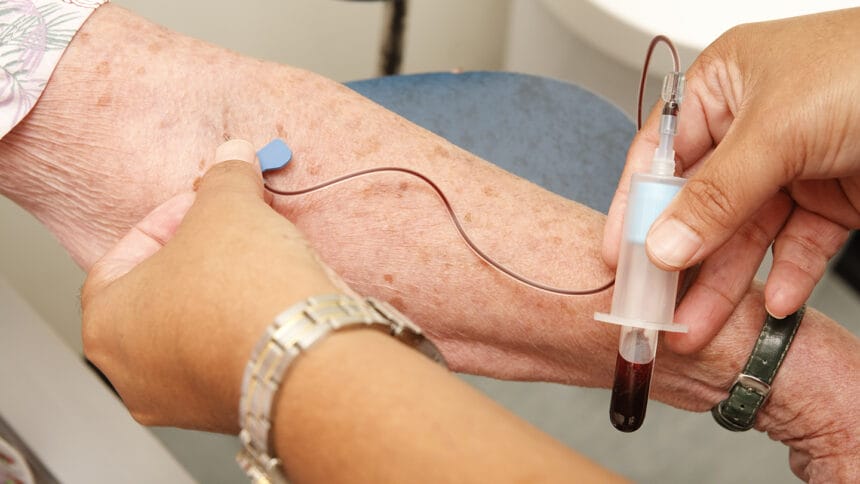
The standard treatment for acute myeloid leukemia (AML) is safe and effective for adults over 80, a study published Thursday in Blood Neoplasia finds. The treatment can extend survival for about 25% of people who use it, authors of the study say.
AML is an aggressive type of blood cancer. Older adults who have it are usually treated with a medication called venetoclax along with a hypomethylating agent (HMA), also known as VEN-HMA. The treatment is often intensive and can suppress the immune system, putting older adults at risk for other health complications. Because of this, some older adults with AML may not be eligible for treatment and instead be encouraged to seek palliative care.
The new study, though, found that some of these older people can benefit from the VEN-HMA treatment, the authors noted.
“While acknowledging it certainly isn’t for everyone, we hope our findings encourage health care providers to thoughtfully explore all treatment avenues for elderly patients with AML, rather than prematurely resorting to HMA alone, best supportive care, or hospice care,” Justin Watts, MD, a hematologist at the University of Miami Sylvester Comprehensive Cancer Center, in Miami, FL, said in a statement.
Researchers looked at medical records from 154 older adults with AML who received VEN-HMA treatment for the first time between March 2015 and April 2022. The treatments took place in six medical institutions in the United States and Italy. The median age of people was 82 years old, and 77% of the participants were newly diagnosed.
Of the participants, 67% started treatment with the standard dose and treatment schedule for VEN-HMA, and 72% of the group had to modify doses or scheduling during the first cycle.
About 20 to 25% of treated patients lived longer by about 8 months; those who responded to treatment lived about 13 months longer. At follow-up just under eight months, 23% of patients stayed in remission, while 20% were still receiving treatment. Death rates within 30 and 60 days of treatment were 8.5% and 17%, respectively.
The treatment can cause myelosuppression, which lowers the ability of the bone marrow to produce healthy blood cells, which can weaken the immune system. People over 80 may be more vulnerable to myelosuppression. As a result, the researchers suggest reducing the dose and duration of treatment for those at increased risk.
The team wants to further study to find an optimal dose and treatment schedule for older adults.



